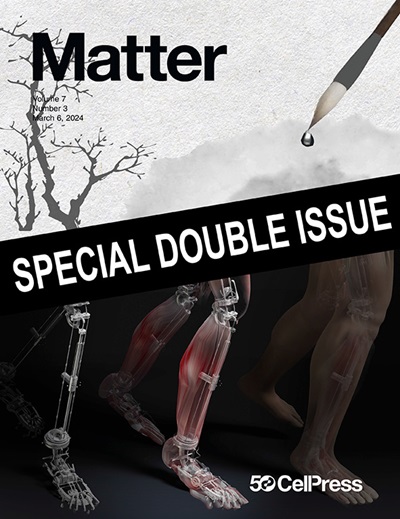机械化学解开低温二氧化碳甲烷化
IF 17.5
1区 材料科学
Q1 MATERIALS SCIENCE, MULTIDISCIPLINARY
引用次数: 0
摘要
长期以来,二氧化碳甲烷化的实现一直受到热力学-动力学权衡的阻碍。在最近一期的《自然纳米技术》杂志上,Guan等人报道了机械化学应变工程可以实现活性位点的动态再生,在创纪录的低温下实现二氧化碳捕获和甲烷化。本文章由计算机程序翻译,如有差异,请以英文原文为准。
Mechanochemistry unlocks low-temperature CO2 methanation
The implementation of CO2 methanation has long been hindered by a thermodynamic-kinetic trade-off. In a recent issue of Nature Nanotechnology, Guan et al. reported that mechanochemical strain engineering enables dynamic regeneration of active sites, achieving integrated CO2 capture and methanation at record-low temperatures.
求助全文
通过发布文献求助,成功后即可免费获取论文全文。
去求助
来源期刊

Matter
MATERIALS SCIENCE, MULTIDISCIPLINARY-
CiteScore
26.30
自引率
2.60%
发文量
367
期刊介绍:
Matter, a monthly journal affiliated with Cell, spans the broad field of materials science from nano to macro levels,covering fundamentals to applications. Embracing groundbreaking technologies,it includes full-length research articles,reviews, perspectives,previews, opinions, personnel stories, and general editorial content.
Matter aims to be the primary resource for researchers in academia and industry, inspiring the next generation of materials scientists.
 求助内容:
求助内容: 应助结果提醒方式:
应助结果提醒方式:


